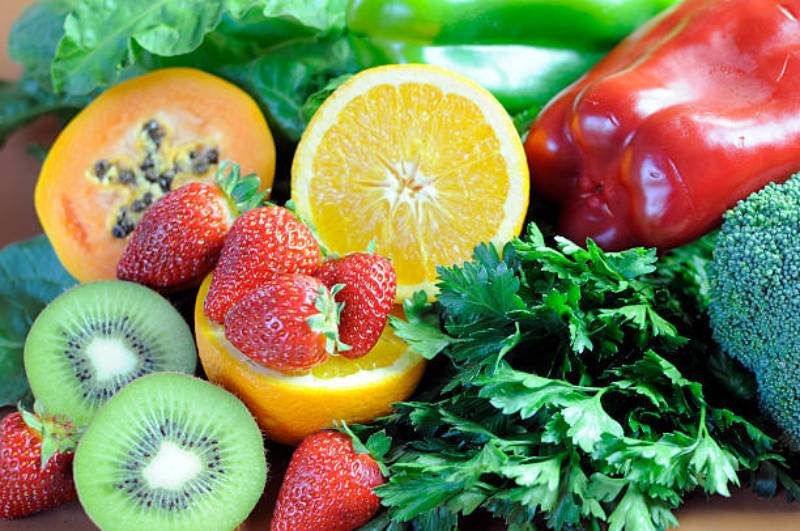Certain health issues can become more likely during the winter months. The body might have to exert more effort to continue operating normally as the temperature decreases and the chill sets in. Moreover, low temperatures have the potential to restrict blood vessels, increasing the risk of heart attacks and strokes by thickening the blood and raising blood pressure.
A healthy diet is crucial in the winter, and vitamin C is one of the essential elements that can help strengthen immunity and support tissue growth and repair. An essential antioxidant, vitamin C can also aid in toxin removal and skin nourishment. A water-soluble vitamin can support a variety of bodily processes; any excess is eliminated through the urine. Regular use of vitamin C is crucial.
Wintertime is the time to eat these foods high in vitamin C
1. Kiwifruit
In winter, kiwifruit is one of the finest fruits to eat because it’s high in vitamin C. This fruit is considered to have an extraordinarily high vitamin C content, with 161.3 mg of vitamin C per 100 g. Approximately 230% of the daily recommended intake of vitamin C is included in it. According to multiple studies, kiwifruit’s high vitamin C content can also help with mineral absorption and retention.
2. Broccoli
The green beauty can help you better prepare for the chilly winter days by giving you a nutritional boost. A variety of vitamins and minerals, including as folate, potassium, manganese, and vitamins C and K1, are abundant in the vegetable. For every 100 g, it contains 65 mg of vitamin C. Consuming this amazing vegetable will undoubtedly prevent colds and coughs. This calorie-dense vegetable provides a wealth of nutrients and antioxidants that support many facets of human health.
3. Strawberries
For those who enjoy strawberries, there is good news! The tasty and sweet strawberries are a great source of vitamin C. For every 100 g, they contain about 59 mg of vitamin C. A cup of strawberry slices contains about 97 milligrams of vitamin C. In addition, the sweet berries include potassium, calcium, iron, manganese, and folate (vitamin B9). A serving of eight strawberries contains more vitamin C than an orange. Eat them whole or add them to your smoothies. You can include them in your diet in a variety of ways.
4. Bell Peppers
Vitamin C is abundant in bell peppers, especially red ones, which contain almost three times as much of it as an orange. Bell peppers are high in fiber, antioxidants, and vitamin A, and they include approximately 128 mg of vitamin C per 100 grams. They are also excellent for increasing immunity. They are simple to consume raw as a snack or toss into stir-fries or salads.
5. Leafy greens
In winter, leafy greens are essential. Swiss chard, spinach, and kale are all high in vitamin C, as are folate and vitamin K. Moreover, these greens include fiber and a number of antioxidants that can strengthen your immune system in the winter. Consuming spinach or kale can provide a substantial increase in vitamin C, which can help prevent colds.
6. Oranges
The vitamin C concentration of oranges is widely known; a medium orange contains roughly 70 milligrams of vitamin C. In addition, oranges provide calcium, fiber, and a number of antioxidants. They are a delicious and convenient winter fruit, and their high water content helps you stay hydrated.
7. Brussels sprouts
These little veggies, which resemble cabbage, are very high in vitamin C. Brussels sprouts are high in fiber, folate, and other vitamins, and they contain approximately 85 mg of vitamin C per 100 grams. They can be grilled or steamed as a healthy side dish in the winter and are believed to strengthen the immune system.
8. Cantaloupe
About 36 milligrams of vitamin C are found in 100 grams of cantaloupe, a sweet and cool winter fruit. Cantaloupe is a great option for staying hydrated and supplying other essential minerals like potassium and vitamin A, even if it has a somewhat lower vitamin C content than some of the other foods on this list. It makes a refreshing snack or a wonderful complement to winter salads.
Topics #Immune-Boosting foods #Vitamin C-Rich Foods











